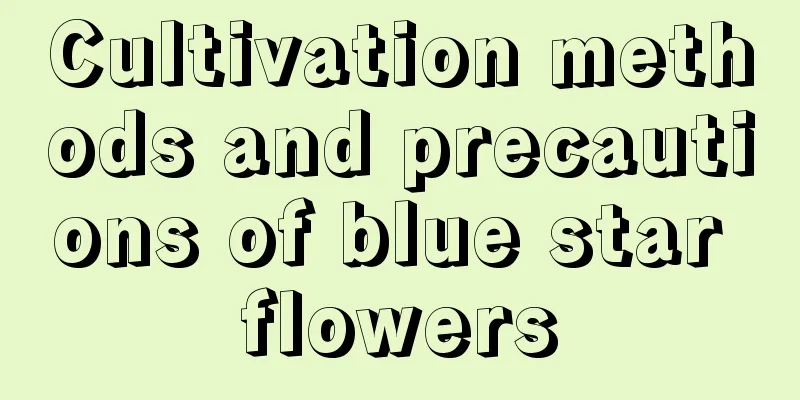The cultivation method and precautions of mustard tuber

1. Maintenance methods1. Soil: It does not have high requirements for soil and can be grown in general soil. In order to avoid insufficient nutrients for newly planted plants, base fertilizer needs to be applied to the soil before planting. 2. Watering: It consumes a lot of water during the growing period. If there is good rain, there is no need for watering. If there is not enough rain and the soil is in a dry state for a long time, artificial watering is needed, generally watering once every three days or so. After each fertilization, you also need to water the plant once to allow the fertilizer to fully dissolve in the soil and facilitate plant absorption. 3. Fertilization: For mustard tubers planted in spring, fertilizer needs to be applied twice within a year. The first drop is before the end of the lunar year, which is around January. The fertilizer can be urea or superphosphate, or a combination of the two. After fertilizing, water once; the second fertilization is at the time of the vernal equinox. The fertilizer can be urea and potassium chloride. If it is a rainy day when fertilizing and the ground is relatively moist, there is no need to water. If the soil is dry, watering is needed to increase the fertilizer effect. 4. Light: It has a relatively large demand for light. If conditions permit, it can be allowed to receive full-day sunlight. If there are no conditions for full-day sunlight, the daily light exposure time should be at least five hours. 2. Breeding techniques1. Reproduction: It can be propagated by sowing. The first step is to soak the radish seeds in clean water for five minutes, take them out and drain the water, and spray them with disinfectant; the second step is to sow the seeds on the seedbed, cover them with soil, and then cover them with a layer of straw; the last step is to water them sufficiently and wait for them to germinate. 2. Thinning: Because the seeds are sown by broadcasting, after the seedlings grow out, the seedlings that are not growing well need to be pulled out. This can avoid competing with healthy seedlings for maintenance resources and avoid unnecessary nutrient consumption. 3. Problem Diagnosis1. Pests: The main pests that spread pathogens are aphids. The early stage after planting is the best time to prevent and control aphids. You can use aphidicide to spray for prevention and control. 2. Disease: If the plant becomes hollow, it means that it was harvested too late. The next harvest should be earlier so that the hollow problem will not occur. IV. Other issues1. Edibility: It is edible. 2. Is it suitable for home cultivation: It can be cultivated at home. |
<<: Artichoke cultivation methods and precautions
>>: Yew cultivation methods and precautions
Recommend
What soil is best for Phoenix bamboo?
The thickness of the soil for Phoenix Tail Bamboo...
The Flower Language and Legend of Yew
The Flower Language of Yew There are two theories...
When to carry out ginkgo layering propagation? Ginkgo high pressure propagation
1. Layering time The time for ginkgo layering is ...
Ginkgo cutting time and method
Ginkgo cutting time If you want to take cuttings ...
Add some ingredients to rice washing water, and the leaves of the green radish will be so green that they will ooze out juice, and the big white roots will be able to burst the pot!
Rice washing water + urea, the leaves are as big ...
Spring glutinous corn open field sowing time
Sticky corn is loved by people for its unique swe...
Cultivation methods and precautions of round-leaf peperomia
Round-leaf peperomia is relatively easy to grow. ...
How to grow Roselle in spring
1. Control Lighting Roselle does not require much...
How to cultivate air plants
Air Plant Growth Conditions Air plants are native...
What flowers are suitable for growing in Yangzhou? What are the city flowers and trees?
1. Climate characteristics of Yangzhou Yangzhou b...
A woman who loves flowers meets a man who loves drinking, and this happens
DIY Self-Watering Flower Pots Take a clean wine b...
Cultivation methods and precautions of purple-leafed hanging bamboo plum (how to grow potted hanging bamboo plum)
The purple-leafed hanging bamboo plant is hundred...
What kind of soil is suitable for aloe vera? What kind of soil is needed for potted aloe vera?
The root system of aloe vera is relatively strong...
Papaya prefers shade or sun
Papaya prefers shade or sun Papaya is a food from...
Transplanting and sowing of Viola yedoensis
Transplantation of Viola yedoensis Viola yedoensi...









